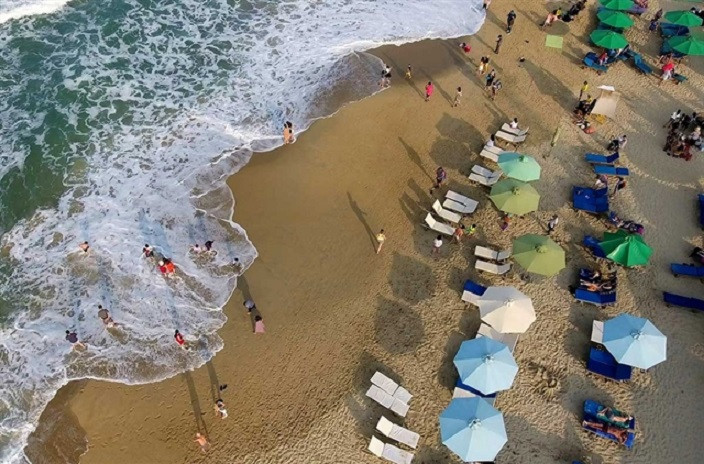
The central Quảng Nam provincial culture, sports and tourism department, in co-operation with ancient town of Hội An, plans to develop the tourism hub as a ‘non-smoking’ and a ‘bicycle’ destination in the ‘green’ tourism promotion campaign.
Director of the department, Nguyễn Thanh Hồng, told Việt Nam News ‘non-smoking’ awareness has been raised by the Hội An’s people’s committee with series of public communication and conferences on the negative impacts of smoking on human heath in 2011-15.
Hồng said the idea would be included in the green tourism criteria issued by the locality in late 2021 for development of green and sustainable tourism products on the basis of hotels, travel agencies, resorts, community-based tourism, homestays and destinations.
Quảng Nam province has been among the first areas in Việt Nam to promote green tourism criteria including waste recycling, waste reduction, energy-saving and plastic-free consumption, he said.
“Hội An City – a UNESCO-recognised world heritage site – has successfully organised non-engine zone for decades. Communications on non-smoking in public has been implemented at community, destinations and public sites for years,” Hồng said.
“We plan to promote the ‘non-smoking’ destination message among travel agencies, resorts, destinations, restaurants and shopping areas, as well as raise awareness in the community about not smoking at public sites.
”Since 2022, Hội An has reserved the old quarter and an expanded area in the west of the city for use as walking streets from 9am to 11am and from 3pm till 9:30pm during the rainy season and 10pm in summer. Motorbikes and vehicles with engines have access for four hours per day and at night time.”
According to Hương Giang, a member of Hội An City’s tourist support centre, smoking-related diseases and the imposition of strict punishments on violations in smoke-free areas was also included in the communications campaign, with warnings printed on vouchers and entrance tickets at destinations in Hội An.
Deputy chairman of Hội An Tourism Association, Võ Phùng said Hội An launched a campaign to raise awareness of good-natured behaviour and hospitality among the community in building a friendly tourism environment and promoting gentle manners.
It urges local community to limit poor manners when hosting tourists in public sites, restaurants and destinations in the old quarter by introducing a code of conduct for local residents
He said local people were called avoid littering in public sites, honking too much in traffic, harassing and overcharging tourists, or making excessive noise in public places.
In the past years, Hội An also had a plan of using bicycle for daily riding among state agencies and local community, and bicycles are still one of the favourite options for tourists and expats.
At least 100 hotels, homestays, villas and restaurants, and travel agencies in Quảng Nam and Hội An committed to reducing plastic waste and building a ‘zero plastic waste tourism’ brand, while restaurants and coffee shops have been using straws, containers and souvenirs from bamboo and reed instead of single-use plastic, said a report from Quảng Nam provincial Tourism Association.
Hội An, which was designed as an eco-tour and environment-friendly destination of Việt Nam, has more than 1,000 accommodations including 43 hotels from 3-5 star, 380 restaurants and 21 destinations.
To date, 80 per cent of state offices had banned smoking, while 110 restaurants and hotels had already assigned smoking area, or posted smoke-free zones.
Smoking was forbidden on all public buses, at schools and hospitals under the 2011-25 no-smoking campaign.
The city has assigned lanes for bicycle riders with an aim of developing 100,000 bicycles among daily commuters.
The central province, home to UNESCO-recognised world heritage sites of Hội An and Mỹ Sơn Sanctuary, and the Hội An-Chàm Islands world biosphere, hosted 7.5 million tourists, including 3.8 million international visitors, with revenue of VNĐ7.95 trillion (US$318 million) in 2023.
Hồng said the Quảng Nam tourism industry, which contributes about 10 per cent of Gross Regional Domestic Product, aims to build sustainable tourism based on ecological protection, conservation, waste recycling and emissions reduction. VNS